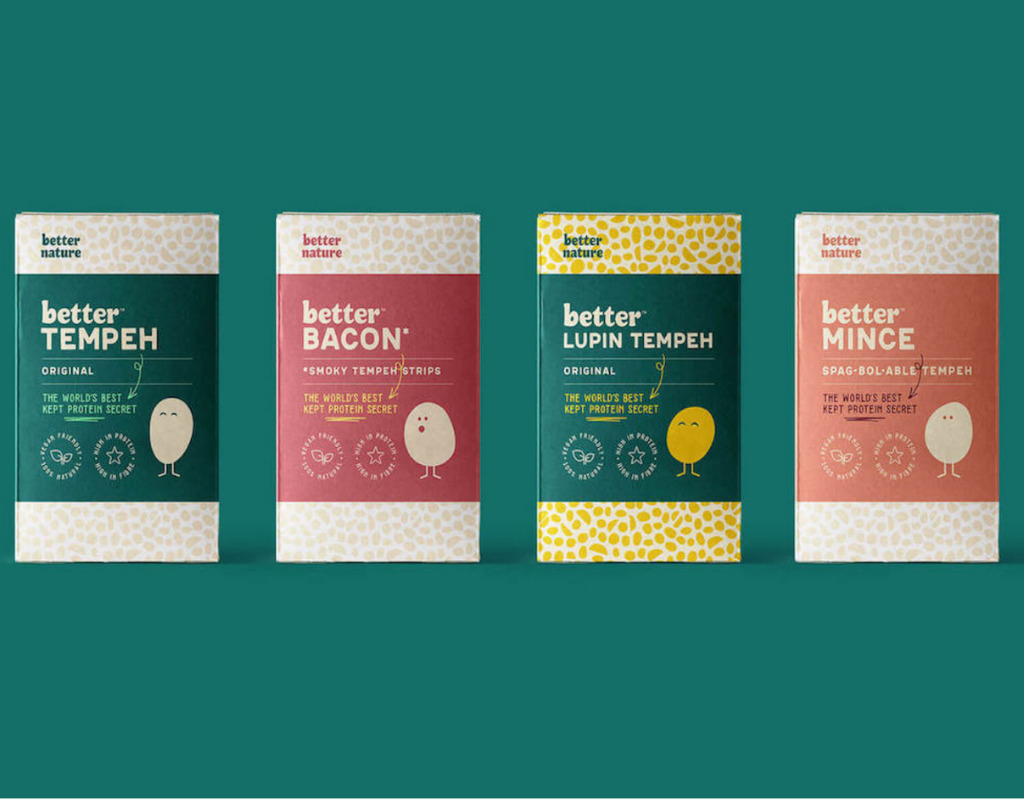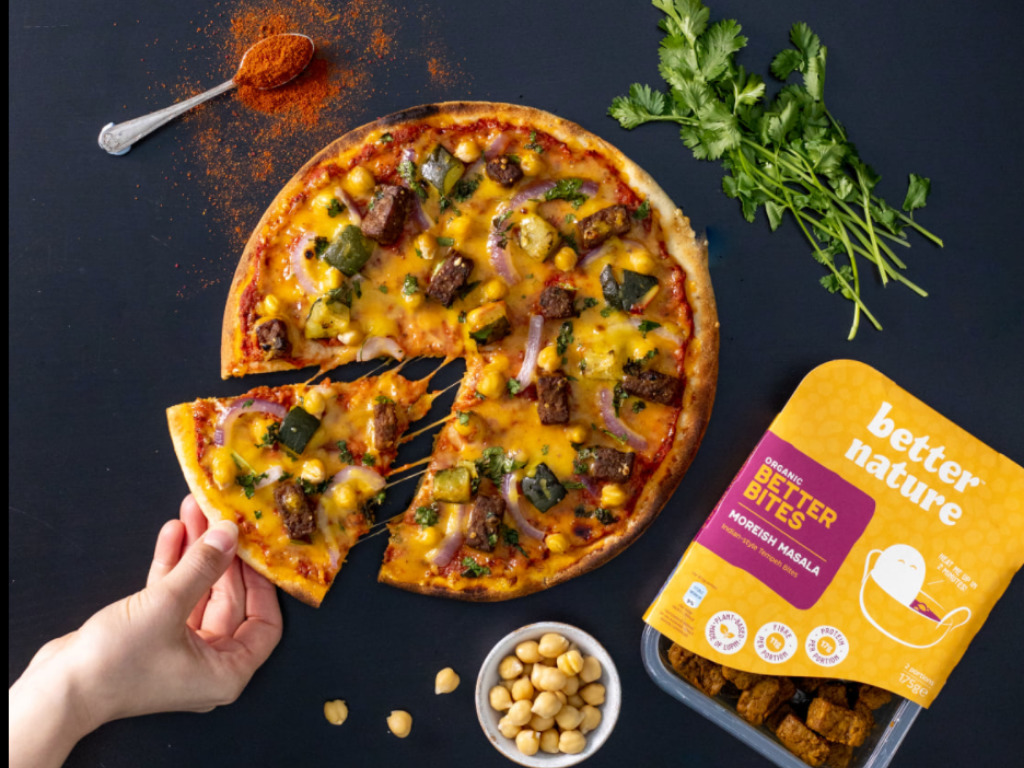4 Mins Read
Food tech startup Better Nature that is popularizing tempeh, the traditional Indonesian fermented protein, recently announced that its existing Soy Tempeh range and its new products set to launch in June 2021 have been certified carbon negative, with the latter also confirmed as plastic negative.
Back in July of last year, London-based Better Nature became the first meat-free brand to become plastic neutral through their partnership with rePurpose Global, the world’s first plastic credit platform.
In an effort to encourage whole foods plant-based eating, Better Nature works with tempeh, an ingredient created out of soybeans, offering a good source of proteins, fiber and gut-friendly prebiotics.
To achieve its carbon negative accreditation, Better Nature worked with Foodsteps, a provider of environmental footprint data and carbon labels, and through a CO2 footprint audit that assesses the entire product lifecycle, all of the brand’s new products earned the highest A rating, meaning they contain “very low” carbon emissions
In a press release seen by Green Queen, CEO of Foodsteps Anya Doherty underlined how vital it is to tackle our food’s impact on the environment. “Better Nature is leading the way by offering protein with an exceptionally low carbon footprint. Not only did they achieve our ‘Very Low’ carbon footprint rating (category A) for all five of their new tempeh products, they also went the extra mile to take responsibility for this footprint by offsetting more than their share to become carbon negative. Foodsteps is looking forward to working closely with Better Nature to take further strides on this exciting journey.”
Additionally, Better Nature worked with ClimateCare, an organisation that develops emission reduction projects and carbon-neutral programs and helps to offset emissions through clean cooking projects in Bangladesh and Ghana.

Not only did Better Nature achieve our ‘Very Low’ carbon footprint rating (category A) for all five of their new tempeh products, they also went the extra mile to take responsibility for this footprint by offsetting more than their share to become carbon negative
Anya Doherty, CEO of Foodsteps
“We work with forward-thinking organisations like Better Nature to turn their climate responsibilities into positive outcomes. Our trademark Climate+Care approach helps organisations take a smart approach to address their environmental impacts by offsetting their carbon emissions through projects which also support sustainable development”, said Aude Duquesne, head of client services at ClimateCare.
For its plastic negative rating, the tempeh food tech worked with rePurpose Global, and by sharing its quarterly plastic use, it will now contribute the amount of money it would take to remove twice the amount of plastic from the environment, to support rePurpose Global’s Impact Projects that are located in West Java in Indonesia, coincidentally, where tempeh originated.
We’re even working towards making our old ranges – the Tempeh Rashers and Mince – carbon-negative too, with the goal of being a 100% plastic negative company by 2022, and a 100% carbon negative company by 2023
Fabio Rinaldo, head of products & co-Founder at Better Nature
In addition to this, Better Nature is looking to reduce its use of plastic and ensure its products contain 100% recyclable packaging wherever possible.
Head of products & co-Founder at Better Nature, Fabio Rinaldo, said: “Being carbon and Plastic Negative has been a goal of ours for a long time and we’re delighted to be able to reach that milestone with our new products, supporting these programs run by leading climate change experts around the world. But we’re not stopping here. We’re working towards making our old ranges – the Tempeh Rashers and Mince – carbon-negative too, with the goal of being a 100% plastic negative company by 2022, and a 100% carbon negative company by 2023.”
The products that have received the carbon negative A rating are Southern-Style BBQ Ribz, Sweet & Smoky Rashers, Traditional Tender Roast Bites, Shawarma-spiced Kebab Strips and Soy Tempeh.
Though the plastic negative rating applies to all of the brand’s products, the labels will be featured only on the packaging of its new range.
The new carbon and plastic negative accreditations reinforces the brand’s commitment to sustainability along with its other existing initiatives like carbon-neutral deliveries, limiting and offsetting flights and energy used at its headquarters, and incorporating recycled components into its packaging and marketing materials.
Apart from this, the brand recently joined forces with healthy recipe box platform Mindful Chef, to introduce new plant-based options – nasi goreng and cottage pie – both created using Better Nature’s tempeh-based ingredients, to the latter’s subscribers
Elsewhere, U.S.- based burger restaurant Shake Shack collaborated with the world’s first regenerative foodware brand, Restore Foodware to conduct a pilot of its sustainable AirCarbon cutlery and straws at 6 of the joint’s locations. The items are carbon negative and they have no synthetic plastics, PLA, synthetic glues, and are home compostable, and degrades in the soil easily.
Back in November of last year, rePurpose Global worked with alternative meat maker No Evil Foods to offset its plastic footprint and become the world’s first plastic-negative plant-based meat brand committing to remove double the amount of plastic it produces.



